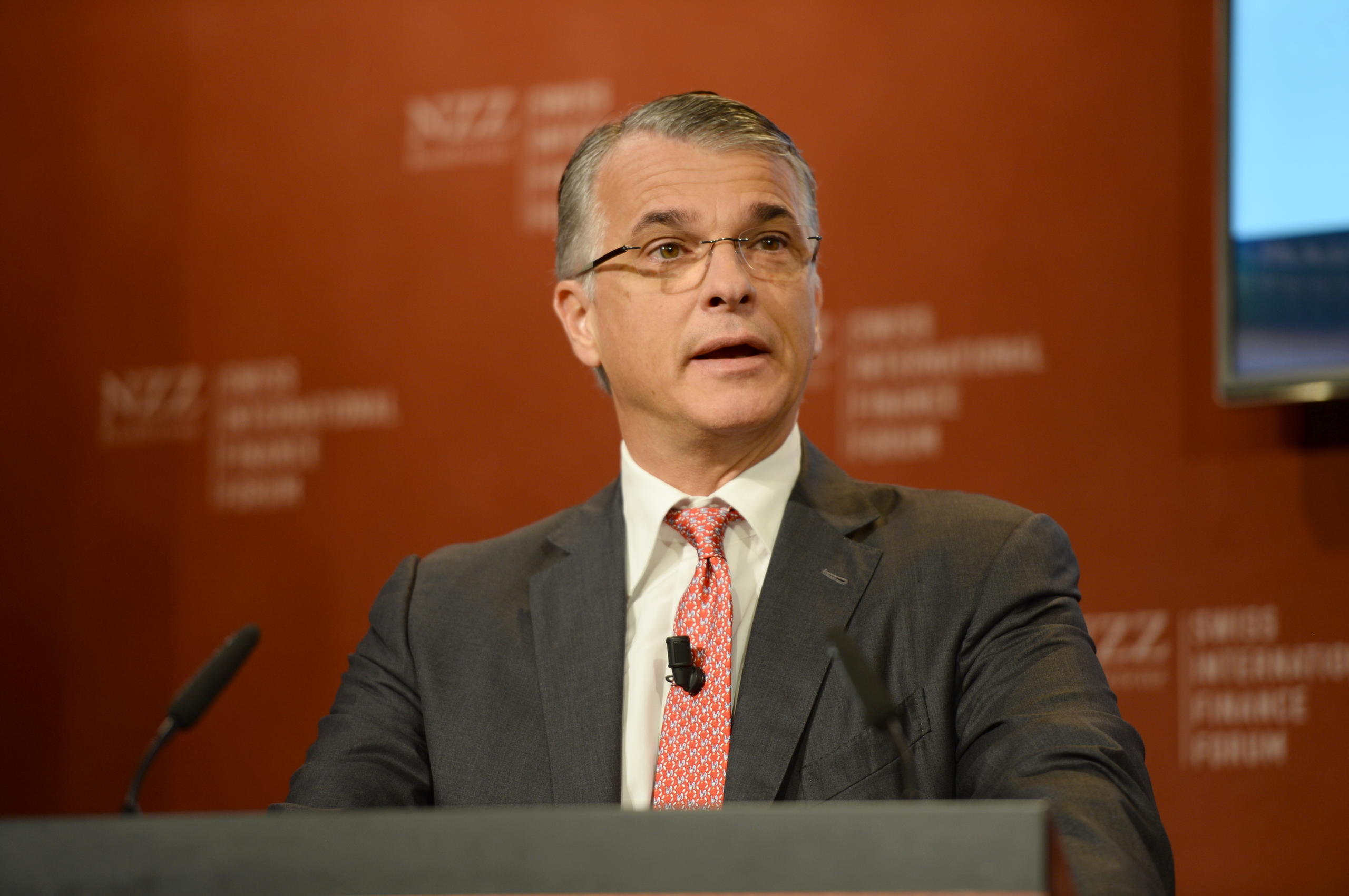Swiss financials find lucrative opportunities at home

When he scoured the world last year for countries Credit Suisse should prioritise, Tidjane Thiam, the Swiss bank’s new globetrotting chief executive, spotted one offering particularly lucrative opportunities – Switzerland.
Mr Thiam has since grabbed attention with an ambitious restructuring plan focused on attracting wealthy clients across China and emerging markets and cutting back Credit Suisse’s investment bank in New York and London. Less noticed is that he is overhauling its Switzerland operations.

More
Financial Times
External linkBefore the end of the year, Credit Suisse will launch a new Swiss legal entity, which brings together its Swiss “universal bank” activities and will be partially listed, probably by the end of 2017.
Getting it right will be as important as Mr Thiam’s Asian plans – Switzerland accounts for almost half of Credit Suisse’s profits.
The bank is not alone among Switzerland’s big financial institutions looking anew at their home market. Under its new chief executive Mario Greco, Zurich Insurance has also revamped its Swiss operations.
Next door to Credit Suisse along Zürich’s Bahnhofstrasse, Martin Blessing, the former chief executive of Germany’s Commerzbank, took over this month as head of UBS’s Swiss operations, which were identified as a priority after its near-collapse in the global financial crisis.
The domestic focus contrasts with Swiss institutions’ lofty ambitions for global expansion in the decade or so before the 2008 turmoil.
“It is fair to say we lost it a bit on branding in our home market, but we have become much better since we strengthened the Swiss-ness,” says Joachim Masur, chief executive of Zurich Switzerland.
“It is about being focused on what is a solid, good business,” adds Thomas Gottstein, chief executive of Credit Suisse’s Swiss unit since last October.
Shift not just by choice
The shift is not just by choice. Because of their size relative to Switzerland’s economy, regulators obliged Credit Suisse and UBS to create local legal entities which could be protected in future crises.
The two big banks have also sought to rebuild their tarnished reputations in their home market since the global financial crisis – UBS’s near demise was the result of subprime write downs.
“There is still a lot of antagonism towards the big banks,” says R James Breiding, author of Swiss Made, the story of Switzerland’s economic success. “I have the sense they are trying to get back into the fold because they were bashed so badly.”
The new bosses of Credit Suisse and Zurich Insurance have also simplified management structures, which had the result of freeing up local managers. “It was clear to us that our Swiss business had been victim of a ‘matrix’ organisation,” says Mr Gottstein. “We didn’t have a person on the executive board exclusively focused on Switzerland – now we do.”
But the main reason for looking again at the home market is its profitability. In the second quarter, Swiss activities contributed almost 50% of pre-tax income at UBS and only a little less to core adjusted profits at Credit Suisse.
“The focus has always been on building beyond Switzerland because that was where the growth was – but actually a big chunk of the profits came from Switzerland,” says Andreas Venditti, bank analyst at Vontobel.
Switzerland is a small enough market to be overlooked by foreign competitors – so there is less pressure on fees charged locally. Yet its population is the wealthiest in the world.
What is more, the relative attractiveness of the home market has increased since the global clampdown on Swiss banks which helped overseas customers evade tax. Swiss banks now have to compete more on price not secrecy – so fees from foreign clients are not as lucrative.
Attracting future clients
To attract future clients, UBS has since 2011 sponsored youth athletes in Switzerland – a model some locals compare with US burger chain McDonald’s efforts to woo younger customers. “The best way of acquiring future wealth management clients is through a retail network,” explains Lukas Gähwiler, who was president of UBS Switzerland before Mr Blessing and is now chairman for the Swiss region.
At Credit Suisse, Mr Thiam wants to rebuild Swiss activities as a “bank for entrepreneurs” – it was founded in the 1850s to help finance Switzerland’s railways. The Swiss universal bank was Credit Suisse’s “crown jewel,” Mr Thiam told a Swiss newspaper this summer. “In Asia, investors ask me when it will be listed.”
Listing its Swiss universal bank will raise capital for Credit Suisse and create a “currency” allowing the lender to finance consolidation in the sector. The number of Swiss banks is falling by about ten a year, dropping to 266 in 2015, according to the Swiss Bankers Association.
The big snag with domestic expansion is that Switzerland is not a fast-growing economy, even if immigration is increasing its population. So international expansion has to remain the long term priority.
“It would be wrong if in a few years time we’re still earning almost 50% of our profits from clients booked in Switzerland,” says Mr Gähwiler at UBS.
But Swiss financial institutions see building their domestic operations as supporting international expansion. Asian clients like to bank with the best-known, most successful Swiss brands, says UBS’s Mr Gähwiler. “If you want to be successful in Asia, you have to be successful in Switzerland.”
Copyright The Financial Times Limited 2016

In compliance with the JTI standards
More: SWI swissinfo.ch certified by the Journalism Trust Initiative




You can find an overview of ongoing debates with our journalists here. Please join us!
If you want to start a conversation about a topic raised in this article or want to report factual errors, email us at english@swissinfo.ch.